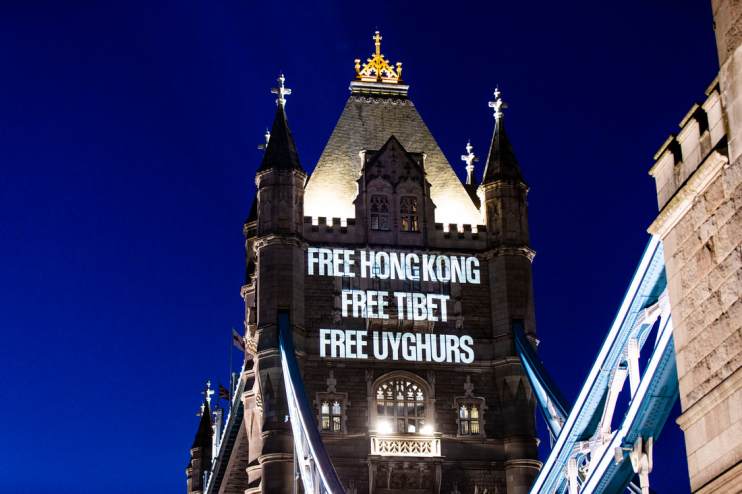Remembering the legacy of Tiananmen is our duty as China censors history

As Brits celebrated the Platinum Jubilee, a much more sombre event was taking place in the capital, as Hongkongers and the wider Chinese diaspora gathered on Saturday to commemorate the Tiananmen Square massacre in Beijing.
With vigils taking place throughout the city, people set out to remember the 33rd anniversary of the massacre on June 4th 1989, where the Chinese army was deployed to remove Chinese students occupying the square to protest for greater freedoms and democracy. It remains unclear exactly how many people were killed – estimates vary from several hundred to several thousand.
Rallies took place outside Downing street, where Hongkongers and Ukrainians stood together to support one another against authoritarianism, and another was held later in the day at Piccadilly Circus.
Some waved flags with the words, and characters, “Liberate Hong Kong, Revolution of our times.” In Hong Kong, the same phrase is now illegal.
Then on Saturday evening, over 300 people gathered outside the Chinese embassy.
At the vigil, people held electric candles and listened to speeches from survivors of the massacre. In remembering Tiananmen, they were also standing shoulder to shoulder with those who had suffered at China’s hand, often in the form of human rights abuses, in Hong Kong, Xinjiang and Tibet.
For those who have recently left Hong Kong, it was an opportunity to remember what those back home no longer can; so curbed are their freedoms under the National Security Law, any public memory of Tiananmen has been virtually extinguished.
This year churches in Hong Kong cancelled memorial services for the first time over fears of reprisal.
The Hong Kong authorities shut down part of Victoria Park, where the annual mass vigil had traditionally been held, and warned people against inciting or participating in unauthorised assemblies, or risk being arrested and sent to jail.
Even those subtler attempts to remember – or protest – were met with swift action from the police. According to reports, one man was arrested for wearing a mask with the Chinese characters “Never forget June 4th.”
But prior to Saturday, the Hong Kong authorities had already taken many draconian steps to prevent the city from remembering Tiananmen.
Many leaders of the group that organised the annual vigil at Victoria Park are now in jail for taking part or inciting others to take part in banned vigils in 2020 and 2021.
Under intense government scrutiny, the group – the Hong Kong Alliance in Support of Patriotic Democratic Movements of China, which was founded in the year of the massacre – voted to disband in September.
Statues commemorating Tiananmen, such as the Pillar of Shame at University of Hong Kong and the Goddess of Democracy at Chinese University of Hong Kong, were removed from their respective campuses in December.
And in September last year, Hong Kong’s Tiananmen museum was gutted by police, after it was closed in June on spurious grounds that it wasn’t operating with a proper licence.
China is not solely concerned with stamping out and punishing those associated with the 2019 pro-democracy movement. It is set on wholly reshaping Hong Kong in its own image.
The Chinese government shows no sign of changing course in Hong Kong, and the list of China’s human rights abuses elsewhere continues to grow.
So far, the UK has done the right thing in trying to support Hongkongers arriving in the UK.
A total of 113,742 Hongkongers have been granted visas to the UK through the British National (Overseas) scheme since it opened on 31 January 2021.
But these vigils, these acts of remembrance in honour of those not allowed to even do that, are a reminder of the stakes. Britain must continue to condemn China’s human rights abuses and act to hold them accountable on a global stage.
